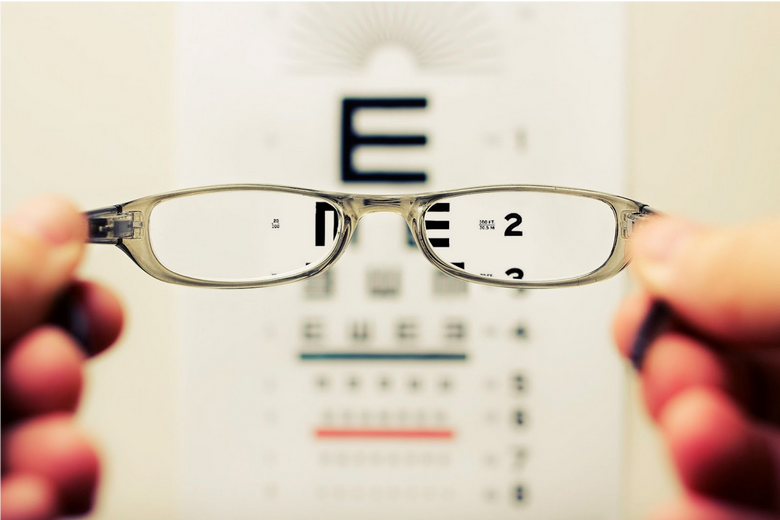
Blurred vision, as the term implies, is a loss of clarity or sharpness in your eyesight. As a result, the images and objects you see may appear fuzzy or out of focus.
Blurriness is one of the most reported vision symptoms, and there are many possible causes. This blog will provide an overview of the most common causes of blurred vision, when it is important to seek help from a doctor, and what you can expect during your exam.
What causes blurry vision?
Although blurry vision can occur for a number of reasons, one of the most common is a refractive error. Refractive errors occur when light is prevented from landing directly on the retina (a thin layer of nerve cells at the back of the eye). This causes images to appear blurry. According to the National Eye Institute, refractive errors are the most common vision problem in the United States, affecting more than 150 million individuals.
The different types of refractive errors include nearsightedness (myopia), in which objects far away appear blurry; farsightedness (hyperopia), in which objects up close appear blurry; astigmatism, an imperfection inhttps://www.nei.nih.gov/learn-... the curvature of the eye that causes blurred vision; and presbyopia, or farsightedness that occurs as a result of aging. During a routine eye exam, a doctor may use a phoropter or digital refractor to identify a refractive error and determine a patient's corrective lens prescription so they can see more clearly.
Another cause of blurry vision is glaucoma, the name given to a group of eye diseases that cause damage to the optic nerve and can lead to vision loss and blindness. The reason why glaucoma happens is still unknown, but research suggests it is linked to eye pressure, as many people with glaucoma have higher-than-normal eye pressure.
Other common causes of blurred vision are cataracts, age-related macular degeneration, dry eye disease, and diabetic retinopathy.
When does blurry vision warrant a trip to the eye doctor?
Mild or infrequent blurry vision can occur because of fatigue, eye strain, or even too much sunlight. If it passes soon after resting, taking a break from the computer screen, or coming indoors, it is likely not something to worry about.
However, if blurriness persists, it may signal that your eyes are changing and your vision prescription may need to be updated. As we get older, this tends to happen more frequently, which is one of the many reasons why regular eye exams are so important.
Prolonged blurry vision, or sudden changes in vision (such as double vision, blind spots, or seeing halos around lights) may signal a more serious eye condition or an underlying health problem and should be checked immediately by your doctor.
What to expect during your eye exam
During a complete eye exam, your eye doctor will use a variety of instruments and equipment to assess the health of your eyes and identify any issues that may be causing your blurred vision.
A digital refractor, for example, is used to shine light into your eyes and measure their response. If the problem is a refractive error, this will help your doctor determine the right lens prescription to help sharpen your vision. Likewise, the doctor will perform a visual acuity test, during which you will be asked to read letters from an eye chart while being given different lens options to see which is more effective.
Other instruments used to examine the eyes include a slit lamp (a type of microscope that lets your doctor view the different parts of your eye under high magnification), a tonometer (the "puff of air" test that measures eye pressure), and digital imaging equipment to capture high-resolution photos of the eye. All of these are important for detecting and diagnosing potential problems that can impact normal vision and overall health.
Have you scheduled your annual eye exam?
Whether or not you are experiencing blurred vision, it is important to schedule a regular eye exam to safeguard your healthy eyesight. Because vision problems can develop at any time and without any signs or symptoms, a regular eye exam with a qualified eye care professional is critical for maintaining good vision.
Eye care professionals: Be sure to pass along these 5 Important Tips to Safeguard Healthy Vision.